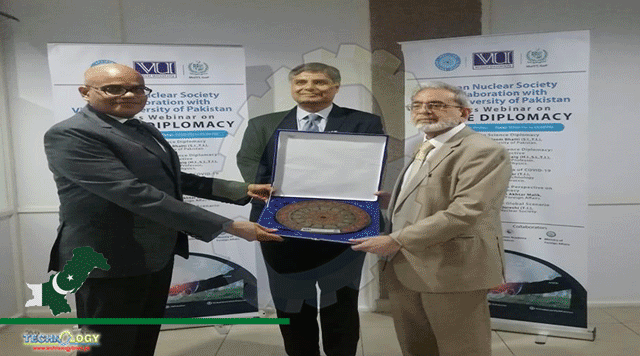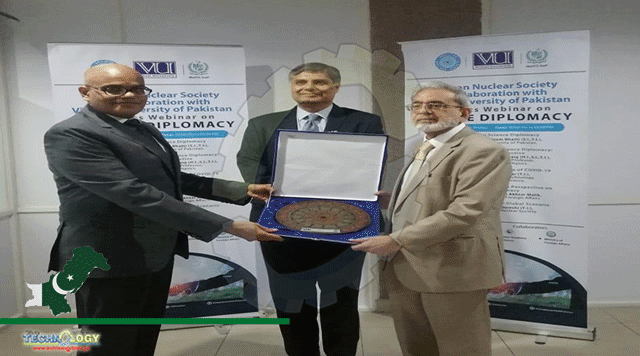The Nomenclature Of ‘Science Diplomacy’ (SD) Has Entered The Lexicon Of Foreign Relations Discourse During The Last Decade Or So.

The Nomenclature Of ‘Science Diplomacy’ (SD) Has Entered The Lexicon Of Foreign Relations Discourse During The Last Decade Or So, but the practices it entails has been in vogue since 1940s. The need for devising a taxonomy of ‘Science Diplomacy’ arose because of the increasing relevance of scientific knowledge in addressing global challenges. It necessarily meant that scientists are required to be closely associated with diplomatic community to inform and to educate on matter with strong scientific underpinnings, such as climate change, infectious diseases, genetically modified foods, cyber security etc. There are a variety of ways in which nations have embedded scientific inputs in their diplomatic endeavours, notably through training of diplomats to appreciate and absorb scientific ethos, on the one hand, and enabling scientists to provide data-based advice in relevant global or cross-boundary issues.
A seminar on the topic was organized by Pakistan Nuclear Society with the support of the Virtual University of Pakistan on 25 th June 2021, in order to publicize Pakistan’s achievements in Science Diplomacy and to highlight the developments taking place else where in the world. Considering the wide variety of audience, including the students, which were expected to join the webinar, it was consider appropriate to start off with an introductory talk on SD. The first speaker, Dr. Arshad Saleem Bhatti, Rector Virtual University of Pakistan, elaborated the basic concepts of Science in Diplomacy, Science for Diplomacy, and Diplomacy for Science.
With specific examples derived from success stories such as CERN project of European countries, he emphasized that Scientific cooperation can lead to political reconciliations. The second talk, entitled “Building Gaps through Science Diplomacy: Pakistan’s Perspective” was delivered by the former Secretary General of Pakistan Academy of Sciences, Prof. Dr. Muhammad Aslam Baig, who elucidated the role played by ‘Abdus Salam International Centre for Theoretical Physics (ASICTP)’, in providing the interactivity between scientists from developed and developing countries.
He also cited the project “Synchrotron light for Experimental Science and Applications in the Middle East (SESAME)” as a fine example whereby even the scientists from bitterly rival countries can work together. An illuminating talk by Prof. Dr. Raheel Qamar, Head of Science and Technology Sector, ISESCO, dilated upon how Science Diplomacy played out in the world during the outbreak of Covid-19 pandemic. It involved cooperation of multiple countries for preparing vaccines, but also highlighted the limitations of cooperation in the presence of national priorities. Recalling that diseases that did not affect Western hemisphere such as Ebola and Malaria were not given due attention by multinational pharmaceutical companies on profitability grounds, he stressed the role of scientific communities in developing countries to promote South-South collaboration. He gave several examples of how ISESCO has been helping OIC countries in scientific capacity building.
The Director General of ‘Science Diplomacy Division’ (SDD) in the Ministry of Foreign Affairs of Pakistan, Mr. Muhammad Kamran Akhtar, spoke at length about the initiatives of Pakistan’s Foreign Ministry in projecting Pakistan’s scientific achievements at international fora and helping local industry in addressing their import-related issues. He lauded the services of Pakistan Atomic Energy Commission for deploying nuclear technology in support of 9 out of 17 Sustainable Development Goals. Mr. Kamran was of the view that SDD is well-placed to use its resources for projecting soft power of Pakistan. The efforts to improve Pakistan’s image abroad will be continued through dissemination of information about achievements of our scientists, such as the recent IAEA award won by Pakistani scientists of Nuclear Institute of Agriculture and Biology (NIAB). He informed the audience that Science Diplomacy ‘Focal Points’ have been nominated in Pakistan Embassies in most capitals, who are responsible for reporting on the measures taken by the relevant embassies to find opportunities of S&T cooperation.
Dr. Imtinan Elahi Qureshi, President Pakistan Nuclear Society, recalled that during his tenure as Executive Director of COMSATS, the first ever round table on ‘Science Diplomacy’ was held in Islamabad in 2015, under the umbrella of this international organization based in Pakistan. The Special Additional Secretary of the Ministry of Foreign Affairs, Mr. A. B. Sial, had conferred on that occasion the titles of ‘Science Ambassadors’ to selected renowned scientists.
The Ministry itself established its Science Diplomacy Division in 2018 and later on Pakistan Academy of Sciences also came on board. Meanwhile two other international organization with Headquarters in Islamabad, namely the Ministerial Committee of Organization of Islamic cooperation on Science and technology (COMSTECH) and Economic Cooperation Organization Science Foundation (ECOSF) also stepped up their efforts to promote Science Diplomacy in their respective member countries, including Pakistan. Dr. Qureshi dwelled upon the current scenario in the world recounting the measures taken by advanced countries as well as developing countries.
He noted that there is a major difference in the two sets of countries with respect to their approach towards involving scientists in decision making processes undertaken by politicians and bureaucrats. An extreme example is that of USA where a high-profile scientist is appointed as the Director of the Office of Science and Technology Policy. With his own team of specialists, he directly advises the US president on matters of international affairs that require deep understanding of scientific knowledge. On top of that the US Department of State also has its own scientific advisory team. The European Union countries individually give high importance to the advice of scientists who do so inindividual capacity or as part of scientific academies.
There is also a “European Union Science Diplomacy Alliance” which works for the promotion of joint interests of the group. Other SD initiatives exist in the Middle East, Latin American Countries, and South Asia, which have varying degrees of impact, so far. Big countries like China and India are also taking measures to use S&T to gain influence and political advantage. Even small countries, like New Zealand, Netherlands, Arab Emirates, Cuba and Nepal are making a mark on the world scene because of their S&T contributions propagated through SD mechanisms. Dr. Qureshi also touched upon the issues of ‘competition’ versus ‘cooperation’ in the face of possible conflicts in national interests and global benefits. He wondered if the upcoming new technologies will help create an egalitarian world in which the benefits of science and technology would be shared equally by all countries.
